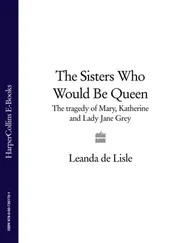At the age of forty-one, Amiel had reached a crossroads. Fearing loneliness, she was seeking marriage in order to have children and embed her social and professional ambitions. Margolis, she decided, was ideal to give her life that structure. He was intelligent, independent and good fun. Frustratingly, he did not show the obedience she liked in her men, and was patently weary that she always wanted to win her point. Amiel could not resist bickering that he should be rich and famous. A fraught ten-day trip to Hong Kong and China ended with her demand, ‘Marry me!’ ‘No,’ he replied, ‘I’d end up in jail.’ ‘Why?’ she asked. ‘Because I’d wring your neck.’ Amiel did not give up her marital ambitions despite an overture from a new admirer. In 1983 Peter Worthington offered her the editorship of the Toronto Sun ’s comment section. She would, Worthington believed, succeed as the newspaper’s ambassador for ideological conservatism, providing a public profile on TV shows to attract the Thatcherites among Canada’s East European migrants. To celebrate her appointment she was taken by Doug Creighton, the Sun ’s publisher, to Winston’s. There are two versions of what followed during the lunch.
In the first version, Creighton asked Amiel in a loud voice, ‘Are you fucking Peter?’ The restaurant fell silent to hear the answer. Amiel jumped up and ran to the lavatory. According to the second version, Creighton kept naming Worthington. ‘Why do you keep mentioning Worthington?’ Amiel asked. ‘Well, he was your predecessor, he hired you, and he trained you as editor. I’m just trying to say he’s gone.’ Waiting for a moment of silence, Amiel screeched, ‘You think I’m fucking him, don’t you?’ Creighton was nonplussed, but replied, ‘Yes.’ ‘Well,’ she said, ‘I’m not.’ Worthington’s explanation of the exchange is benign: ‘Doug was mesmerised by her. She dazzled him. He was persuaded that she was a bombshell.’
Worthington issued the invitations to Amiel’s appointment party: ‘The Sun has a new editor. It’s a girl.’ Transfixed by Amiel, Worthington became unhappy that Eric Margolis was asked by Amiel to edit the comment section in her absence. The triangle could lead to the farce of Worthington calling at Amiel’s flat while she was at Margolis’s. There was gossip that on one occasion Amiel was standing outside Margolis’s flat, waiting for another woman to leave, while Worthington stood outside Amiel’s flat, waiting for her to return. Amiel’s eccentric personal life and odd hours spread into the editorial newsroom. Either she arrived dressed in a chocolate-brown velour tracksuit, looking harassed with unkempt hair and sunglasses, or she appeared as carefully groomed as a Vogue model. ‘Either a bag lady or a $1 million outfit,’ commented Worthington. On one occasion she strode purposefully past Christie Blatchford, one of Canada’s notable columnists, wearing an ‘open trenchcoat, under which could be clearly seen a black bustier, garter belt and fishnet stockings’. Amiel’s gyrating moods were experienced by Allan Fotheringham, another columnist and an occasional boyfriend, during a trip to Vancouver. After flying 3,000 miles to a gathering of theologians, Amiel felt inclined to shock. Ten minutes after arriving at the party, Fotheringham was surprised to hear her shrill ‘Fuck!’, followed minutes later by a loud ‘Cocksuckers!’ Soon after, the two were standing alone in the garden. The theologians had fled into the house.
By 1984 Amiel’s limitations as an editor were causing even Worthington unease. While she was appreciated by some women journalists as an intellectual, fun, right-wing babe, Worthington marked her down as ‘a dangerous writer’. She was, he decided, ‘not an original thinker but a clear thinker. She marshals other people’s ideas and then personalises them. She knows how to get under people’s skin and find their Achilles heel.’ That talent was inadequate when the news broke of Britain’s response to Argentina’s invasion of the Falklands in April 1982. Amiel needed guidance about ‘our line’. Repeatedly she tried to call Worthington, who was out of reach climbing mountains in China. In desperation, she telephoned George Jonas. ‘I’m against the British,’ said Jonas. So that was the Toronto Sun ’s line, and Jonas was given a column as a poet and later as a commentator. Amiel’s attitude did not inspire loyalty. ‘Her people skills are not great,’ sighed Worthington. ‘She’s focusing on people she likes, and she’s not happy working in the background instead of the spotlight.’
Amiel had reached yet another crossroads. Margolis, she decided, was a bon vivant , uninterested in commercial success. The relationship, she concluded, just like her other concurrent affairs, was pointless. In 1982 she had met David Graham, the good-looking, rich stepbrother of Ted Rogers, Canada’s leading communications mogul. Four years older than Amiel, Graham represented upper-class wealth from the Ottawa Valley. Relationships with WASP businessmen, she decided, were less complicated than with men of mixed European backgrounds. ‘A relatively simple person,’ she would write, ‘can be a very attractive quality in a lover.’ By ‘simple’ she did not mean ‘unintelligent’, just not ‘psychologically complex’. Complexity, she decided, ‘is an awful pain in the neck in lovers. It can create mood swings, whining and sometimes meanness [because] good lovers paradoxically want to please no one but themselves.’ 49 Graham was, she decided, uncomplicated, and therefore a good lover. To keep everyone on their toes, she introduced the new to the old. Margolis met Graham, and smiled his lack of concern. Amiel chose Graham, not suspecting that twenty years later Margolis would own a multi-million dollar vitamin company with over three hundred employees. ‘I’m hankering for David,’ she told a friend. Committing herself to Graham reflected her desperation for domesticity and a child.
Graham, renowned for his many relationships with glamorous women, wanted a home-maker in London, but was casually unspecific about his other requirements. A beautiful, intelligent woman was appealing, but marrying a forty-four-year old Jewish libertine who paraded her ‘erratic emotional life’, implying sexual promiscuity, was an untested experience. At least there was good reason to believe that Amiel had abandoned her pose as an opinionated, left-wing hippie. Recently she had praised the virtues of wealth and comfort. ‘I so loathe the permissive, promiscuous society,’ she had written, ‘and so long for fidelity, stability and monogamy, but it is always just out of my reach. There is a thing called discipline. I have tried to inflict it on my work. I’ve tried to inflict it on me. But all that emerges is self-indulgence. Really, I won’t talk about my personal life, because I am ashamed of it.’ 50
One minor forewarning for Graham of the perils of cohabiting with Amiel occurred at the wedding of Roy Faibish, a Canadian television producer and political adviser, at Chelsea Register Office in London. Amiel arrived with Graham, and met the CBC TV producer Patrick Watson with his girlfriend Caroline. ‘She’s so cute,’ said Amiel. ‘You’ve been together for some years. I always marry the men I sleep with.’ This carping comment to someone who was familiar with Amiel’s career at CBC provoked a blistering argument in front of thirty guests. Graham noted his fiancée’s independent spirit. Unlike other women, she had achieved fame on her own account, without depending on a rich husband’s wealth. Marrying her would not expose him to a financial liability – in fact she could be generous – but harnessing her strong character would be a challenge .
On 2 July 1984, while visiting Nantucket, off the coast of Massachusetts, Barbara Amiel and Graham married. Soon after the ceremony, Graham was badly injured in a car crash in France. After his recovery Amiel decided to celebrate the marriage again in Toronto, and to host a party at the Sutton Place Hotel.
Читать дальше












